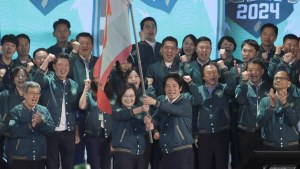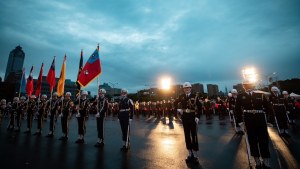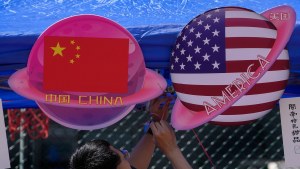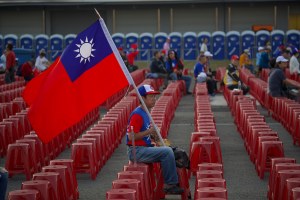With a presidential election fast approaching, Taipei’s defense policy could go in multiple directions.
As China has grown more militarily capable and assertive under President Xi Jinping, Beijing’s promise to forcibly unify with Taiwan has increasingly worried both Taiwan and the United States. Beijing’s large-scale military exercise near Taiwan this fall underscores the role Taiwan’s own military capabilities play in deterring conflict in the Taiwan Strait. To that end, US policymakers have increased defense cooperation with Taiwan and urged Taipei to do more for its defense in recent years. However, whether Taipei will stick to the defense policies implemented under current president Tsai Ing-wen is uncertain.
This coming January, Taiwan’s voters will select a new president. Currently leading the polls is Vice President Lai Ching-te of the ruling Democratic Progressive Party (DPP), which is committed to Taiwan’s sovereignty and views Taiwan as effectively already independent. Beijing has angrily decried this position and boycotted talks with Taipei as long as the DPP remains in power.
Meanwhile, the path ahead for the Kuomintang (KMT), the primary opposition party, is riven with internal fissures. The party has traditionally sought closer economic and cultural ties with Beijing to defuse tensions—something it seems uniquely qualified for, since the PRC will not talk to the current DPP government. Yet emphasizing dialogue with an increasingly aggressive PRC, especially after Xi’s crackdown on Hong Kong’s limited self-government in 2020, has soured many voters on the KMT’s message. In response, reformers in the party have suggested a new direction more closely aligned with the DPP on national security to win back moderate voters, while traditionalists have doubled down on the old promise of peace through dialogue.
This latter path would be worrying for the Biden administration, which has increased arms sales to Taipei and presided over a period of worsening US-China mistrust. US concerns are a helpful reminder that, whether discussing Taiwan’s future or the risk of a catastrophic cross-Strait war, Taiwan’s own politics cannot be ignored. The rigor of Taipei’s defense—and, with it, the health of cross-Strait deterrence—will depend largely on the course Taiwan’s politics take.
Key Findings
- Given a DPP victory, the Lai administration’s defense policy would likely look similar to the current administration’s: steady enhancement of Taiwan’s military capabilities in response to the growing Chinese threat, including gradual increases to the defense budget and rhetorical appeals to the public to prepare to defend Taiwan if it comes under attack.
- The KMT’s defense policy is made uncertain by its reformer-traditionalist divide. If reformers dominate on defense policy after a KMT victory, Taiwan would likely continue much of its current defense policies and reassure Washington that it would not build close ties with Beijing.
- However, if the KMT wins power and traditionalists gain more influence instead, the priority will not be building up Taiwan’s military power or cooperating more closely with the United States but improving relations with Beijing. That could mean lowering defense spending and toning down the rhetoric that has enabled Taiwan’s recent increases in defense spending and mandatory conscription. KMT policy is further muddled by the recently brokered joint ticket with the Taiwan People’s Party.
- Even if Taiwan’s defense policy continued on its current path, however, it would likely not meet US expectations for a while. Hopes in Washington that Taiwan will spend much more on its defense or shift to an asymmetric approach given the threat posed by China’s powerful military have been dashed by Taipei’s political incentives to maintain the status quo defense strategy and the Taiwanese military’s traditional preferences.


Related Content
 Defense and Security
Defense and Security
Deep Dish explores the challenges and choices Taiwan faces in preserving peace and navigating its delicate relationship with China and the US.
 Defense and Security
Defense and Security
Military conscription is a good start, but leaders in Taipei need to act with greater urgency still, Ethan Kessler writes.
 US Foreign Policy
US Foreign Policy
A plurality of Americans—and a majority of Republicans—also say that US leaders are not paying enough attention to US-China competition.

